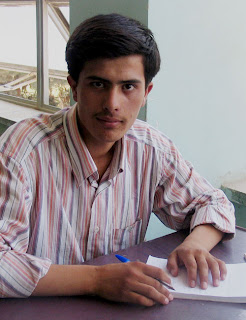I have been reading a lot of media bumpf about the controversial decision to give Dr. Henry Morgentaler the Order of Canada – this country’s highest civilian honour. A couple of Catholic recipients have sent theirs back in protest and apparently the government’s e-mail is overflowing with the protests. However, an Angus-Reid poll indicates that two-thirds of Canadians support Morgentaler’s award.
What the doctor did, against crushing legal hurdles and a very organized opposition by abortion opponents, was to make safe, medical abortion available to all women in this country.
Prior to his battle with the authorities, abortions were regularly carried out, but often in illegal and medically dubious circumstances. The right to an abortion already existed when Morgentaler came to the forefront, so he did not create it, but the circumstances were limited. You needed a hospital committee to approve and it had to be because the “health” of the mother was endangered. Only some hospitals (maybe half) had such committees and there was dangerous delay while these committees conferred on individual applications. Furthermore, nobody knew what “endangered health” meant. Pregnant women in rural parts of Canada were more at risk trying to get an abortion than those in large urban centres, so there was social unfairness because of geography.
Morgentaler’s battle clarified those problems when the Supreme Court of Canada struck down the law. It left it up to the Parliament of Canada to enact new legislation governing abortion. Successive governments have failed to do so and that fault cannot be laid at Morgentaler’s door.
He deserved his award.
I am not interested in the religious claptrap put out by Catholics and others about the immortal soul being created at the time of conception. There is no immortal soul and the discussion about abortion is not helped by the continual prattling on about such nonsense.
Abortion amounts to taking a life, even if the life is little more than a ping-pong-ball- sized piece of protoplasm. While all life has a basic right to protection, there are exceptions. Our soldiers shoot to kill enemies. Our police officers are authorized to kill to protect themselves. Even a civilian has the right to kill to save his own life. So, to suggest killing is wrong in all circumstances is incorrect. And although the state sanctions such killings, it is left to the discretion of the individual whether to commit the act.
The question to be resolved is whether it is morally acceptable to kill life in the womb and under what conditions.
In rendering the
R. v. Morgentaler decision, the late Madam Justice Bertha Wilson made this cogent observation:
The decision whether to terminate a pregnancy is essentially a moral decision, a matter of conscience. I do not think there is or can be any dispute about that. The question is: whose conscience? Is the conscience of the woman to be paramount or the conscience of the state? I believe, for the reasons I gave in discussing the right to liberty, that in a free and democratic society it must be the conscience of the individual.
There are things about abortion that make me uncomfortable.
I constantly hear this phrase about the right of a woman “to control her own body.” I suppose this is supposed to be a pro-choicer’s way of stating the issue enunciated by Wilson, but it doesn’t quite cut it. Whenever I hear it, I am tempted to say “yes” and why doesn’t she control it at the time of sex by just crossing her legs and saying “no”? To do so would not be a moral problem, it would be a practical solution to avoid having to later consider the moral implications that flow from uncrossing her legs.
Of course, there are women who are raped to whom this piece of wisdom could not apply. That would be a circumstance in which access to abortion could not be denied.
I also grow uncomfortable with statistics that indicate that abortion is just another kind of birth control. That is not right, but I don’t know what the answer is, other than better education.
The pro-life lobby, mainly driven by Catholics (who officially eschew birth control, but privately practice it), thinks that all women should carry a baby to full-term and either accept the burdens of motherhood or choose to relinquish the child for adoption.
Firstly, this is not practical. A pregnant 14, 15 or 16-year-old girl cannot accept motherhood as a realistic option. She is just a child herself and to take on the burden of motherhood would mean that she and her child would be doomed to a life of poverty or near poverty.
It strikes me that whenever I see one of these Catholic demonstrations against abortion, the people who have so much to say about it, and so much time on their hands to be parading around saying it, do not live in poverty and neither do their children. They have no idea what a life like that would be like, but they sure want to condemn a large portion of the population to live it.
Secondly, those of us who are not pro-lifers would have to pay through our taxes the burdens that would come from a society where teenage girls, or women living in distressed economic circumstances, are forced to carry to full term. Of course, we know that clandestine abortion would still be available in such a society, with all the problems that go with it.
And what of the other option, giving a child up for adoption? This assumes that there are an equal number of qualified parents seeking a child for every child available. Unlikely. This means that some, if not the majority, of these children will be raised in institutions.
Odd, isn’t it, that the pro-lifers want the state to act to prevent abortions and but then expect it to assume the burden of child-rearing as a consequence of that action?
Perhaps the pro-lifers should have to pay extra taxes for the outcome of their social policies.
I know women who have had abortions. I know one who had one before Morgentaler’s time who ended up being sterilized by the procedure. I have also known children, male and female, who were given up for adoption, some successfully adopted, others not. I have also known one woman, who, at the age of 16 gave up her baby for adoption.
If there is one characteristic that I could say was common to all of these people it would be sadness.
None of the women who had abortions did so with a glad heart, there was much anguish over the decision and many tears, followed by long periods of depression.
The woman who gave up her child more than 40 years ago, to this day, still yearns to know how he is, and the consequences of that decision made her leave home at an early age (no family support for raising the child). She has also spent those 40 years in therapy, which is not unrelated to her childhood trauma.
The children, even those adopted by loving parents, never got over the emotional hurt of not knowing why their mothers abandoned them, and they longed for years to find the answer to this gnawing doubt.
One study done in the United States was able to correlate the drop in the crime rate in 20 years after the introduction of legal abortion.
In our society, we are subjected to the consequences of neglected young males joining gangs and getting involved in drugs and guns and wreaking havoc over entire communities. Most of these young men grew up in poverty with single mothers who were unable to provide for them.
An unwanted child will ultimately be a neglected child. There are few things that are more devastating to the emotional and mental health of a young child than the realization that he or she really wasn’t wanted. As a society we will all eventually pay for that damage.
On balance, while abortion makes me squeamish, I think it is the lesser of two evils.







